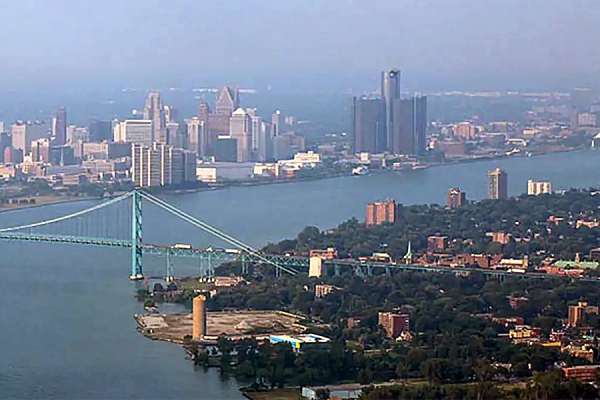 The United Nations has designated a partnership between the University of Windsor and Wayne State University a Regional Centre of Expertise on Education for Sustainable Development.
The United Nations has designated a partnership between the University of Windsor and Wayne State University a Regional Centre of Expertise on Education for Sustainable Development.
A new partnership between the University of Windsor and Wayne State University will foster sustainable development on both sides of the Canada-U.S. border, says UWindsor president Robert Gordon.
The United Nations has designated the two institutions a Regional Centre of Expertise on Education for Sustainable Development in the Windsor-Detroit area.
They will explore cultural and learning exchange and research in community health and well-being, equitable city-building practices, active transportation, industry and innovation in the green economy, clean water, sustainable urban planning and housing policy, and climate action.
“Our unique location offers exciting opportunities to collaborate on a range of sustainable development initiatives to benefit the entire urban border region,” Dr. Gordon says. “Under the leadership of talented and interdisciplinary faculty members, and in collaboration with municipal governments and community partners, we look forward to taking a transnational approach and combining efforts to further the UN’s Sustainable Development Goals.”
Focused on the United Nations Sustainable Development Goals, the project will identify actions that address climate change, economic and health disparities, and social inequity to create a more sustainable future for the two communities that share an international border.
The UWindsor team has been spearheaded by Edwin Tam, acting associate vice-president academic and associate professor of engineering; Lee Rodney, associate professor in the School of Creative Arts; and law professor Anneke Smit, director of the Centre for Cities.
Leading the Wayne State side of the project are Ahmad Ezzeddine, vice-president of academic student affairs and global engagement; Stephanie Hartwell, dean of the College of Liberal Arts and Sciences; Darryl Pierson, co-ordinator of the Office of Sustainability; and Elena Past, professor of Italian.
Approximately 20 faculty members at both institutions have been involved in the year-long process leading to certification, with support from municipal governments, local school boards, economic development agencies, and social and environment advocacy groups.
The UN has recognized 179 such centres around the world. The Detroit-Windsor team’s immediate goals include establishing bi-national working groups between experts and stakeholders in both countries and creating new channels of authority to allow participants to access physical resources, apply for funding, and conduct joint research.
Its primary office will be at Wayne State, with a satellite office at the University of Windsor in the Office of the Associate Vice-President External, Vincent Georgie, in collaboration with the director of sustainability. A working group of faculty members will support the leadership at both institutions, with plans for a community advisory board from collaborating organizations.
